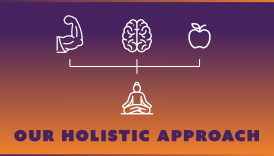The Science Behind a Long and Healthy Life

Why Longevity Matters
Longevity is more than just living a long life; it’s about the quality of those years. People increasingly seek not only to add years to their lives but also life to their years. This desire stems from a natural inclination to maximize experiences, create lasting memories, and maintain vitality as they age. Consider the joy of watching grandchildren grow, pursuing hobbies that bring fulfillment, or traveling to places long dreamt of. Research shows that quality of life can drastically improve when one feels physically capable and mentally sharp well into old age.
- The Science Behind a Long and Healthy Life
- Why Longevity Matters
- Factors Influencing Life Expectancy
- Genetics and Longevity
- Understanding Genetic Influence
- Genetic Testing for Longevity Markers
- Nutrition for a Healthy Life
- Importance of a Balanced Diet
- Superfoods for Longevity
- Exercise and Longevity
- Impact of Physical Activity
- Best Exercise Practices for a Longer Life
- Mindfulness and Mental Health
- Stress Management Techniques
- Cognitive Benefits for Longevity
- Sleep and Longevity
- Connection Between Sleep and Health
- Tips for Better Sleep Habits
- Social Connections and Longevity
- Effects of Relationships on Health
- Building a Supportive Social Network
- Preventive Health Measures
- Importance of Regular Check-ups
- Vaccinations and Longevity
- Environment and Longevity
- Impact of Pollution on Health
- Creating a Healthy Living Environment
- Aging Gracefully
- Embracing the Aging Process
- Tips for Healthy Aging
Factors Influencing Life Expectancy
Several factors play a crucial role in determining an individual’s life expectancy, including:
- Genetics: The blueprint of life, influencing health and longevity.
- Lifestyle Choices: Diet, exercise, and engagement in meaningful activities all contribute.
- Environment: Air quality, access to healthcare, and social connections can significantly affect longevity.
- Socioeconomic Status: Education and financial stability often lead to better health outcomes.
Understanding these factors empowers individuals to make informed choices that can enhance their longevity and overall well-being.
Genetics and Longevity
Understanding Genetic Influence
The role of genetics in longevity is both intriguing and complex. While it’s clear that family history can give clues about how long someone might live, the genetic factors involved are not straightforward. For example, individuals from families where several members have lived past 90 often possess unique genetic markers linked to resilience and health. These markers can influence:
- Cellular Repair: How well your cells can fix themselves after damage.
- Metabolism: Efficiency in burning energy, impacting weight and overall health.
- Disease Resistance: Genetic predispositions can affect susceptibility to chronic conditions.
Genetic Testing for Longevity Markers
As the science of genomics advances, genetic testing is becoming more accessible. These tests can provide insights into longevity by identifying specific genetic markers. For instance:
- APOE gene: Associated with Alzheimer’s risk.
- IL6 gene: Linked to inflammation and aging.
Many people find value in knowing their genetic makeup, helping them focus on personalized lifestyle changes and preventive measures. Just like my neighbor, who discovered she has a potential predisposition to high cholesterol; she revamped her diet and included regular exercise, impacting her overall health positively. With this knowledge, individuals can take proactive steps towards a longer, healthier life.
Nutrition for a Healthy Life
Importance of a Balanced Diet
Transitioning from the role of genetics, let’s talk about nutrition, a critical pillar in the quest for longevity. A balanced diet provides essential nutrients that support bodily functions, helping to fend off chronic diseases and maintain overall health. Personal experience shows how impactful this can be; after adopting a well-rounded diet, my energy levels soared, and even my mood improved significantly. A balanced diet typically includes:
- Fruits and Vegetables: Rich in vitamins, minerals, and antioxidants.
- Whole Grains: Offer fiber that supports digestion and heart health.
- Healthy Fats: Such as avocados and nuts, essential for brain function.
- Lean Proteins: Important for muscle maintenance and repair.
Superfoods for Longevity
Certain “superfoods” are now recognized for their extraordinary health benefits. Incorporating these into your diet can significantly boost longevity. Consider these powerhouses:
- Blueberries: Packed with antioxidants that combat aging.
- Salmon: High in omega-3 fatty acids, which reduce inflammation.
- Quinoa: A complete protein that provides energy without the excess carbs.
Integrating these superfoods into meals can be as simple as tossing some berries into your morning oatmeal or swapping beef for salmon in your weekly menu. Embracing these foods can be a flavorful and enjoyable way to nurture your body for a longer, healthier life.
Exercise and Longevity
Impact of Physical Activity
Having established the importance of nutrition, it’s time to shift our focus to another crucial factor in longevity: physical activity. Engaging in regular exercise can profoundly impact one’s health, reducing the risk of chronic diseases like heart disease, diabetes, and even some cancers. Personally, after committing to a consistent exercise routine, I noticed my stress levels decreased, and I felt more invigorated throughout the day. Research suggests that even moderate activity can yield substantial health benefits. Some key impacts of physical activity include:
- Improved Heart Health: Strengthening the cardiovascular system.
- Enhanced Mental Health: Releasing endorphins that lift mood.
- Weight Management: Helping maintain a healthy weight and muscle mass.
Best Exercise Practices for a Longer Life
So, what are the best exercise practices for promoting longevity? Here are a few recommendations:
- Aerobic Activities: Walking, swimming, or cycling for at least 150 minutes per week.
- Strength Training: Engaging in resistance exercises twice a week to build muscle and bone density.
- Flexibility and Balance: Incorporating yoga or tai chi to improve balance and prevent falls.
Remember, the key is consistency and finding activities you enjoy. As my friend discovered with her daily dance classes, movement can be energizing and enjoyable—definitely a recipe for a longer, happier life!
Mindfulness and Mental Health
Stress Management Techniques
Following the discussion on physical activity, it’s essential to address the role of mindfulness and mental health in promoting longevity. Chronic stress can take a significant toll on one’s health, leading to increased risks of cardiovascular diseases and premature aging. To combat this, embracing stress management techniques can be transformative. In my own experience, discovering meditation was a game-changer; just a few minutes each day brought a sense of calm and clarity. Here are some effective stress management techniques:
- Meditation: Practice mindfulness or focused breathing to center your thoughts.
- Deep Breathing Exercises: Inhale deeply, hold for a few seconds, and exhale slowly to relieve tension.
- Physical Activities: Engage in yoga or tai chi, combining movement with mindfulness.
Cognitive Benefits for Longevity
Beyond stress reduction, mindfulness has cognitive benefits that can contribute to longevity. Practices such as meditation and mental exercises can enhance brain function and memory. Research has shown:
- Improved Memory and Focus: Regular mindfulness practice strengthens cognitive abilities.
- Mental Resilience: Helps in managing anxiety and depression, leading to a healthier mindset.
- Enhanced Creativity: Mindfulness fosters innovative thinking, keeping the brain engaged.
Integrating mindfulness into daily routines not only enhances mental health but can also lead to a longer, more fulfilling life. It’s about nurturing the mind just as we do the body, creating a more holistic approach to well-being.
Sleep and Longevity
Connection Between Sleep and Health
As we explore the factors influencing longevity, it’s crucial to discuss the often-overlooked importance of sleep. Quality sleep is vital for overall health and plays a significant role in how long we live. During sleep, the body undergoes essential repair processes, releasing hormones that help with growth, stress reduction, and immune function. From personal experience, I’ve noticed a direct correlation between my sleep patterns and my energy levels the following day. Inadequate sleep can lead to increased risks of conditions such as obesity, diabetes, and heart disease, all of which can shorten one’s lifespan.
Tips for Better Sleep Habits
To enhance sleep quality, consider these practical tips:
- Establish a Bedtime Routine: Go to bed and wake up at the same time every day to regulate your body’s clock.
- Create a Sleep-Inducing Environment: Keep your bedroom dark, quiet, and cool.
- Limit Screen Time: Avoid screens at least an hour before bed to reduce blue light exposure.
- Watch Your Diet: Avoid heavy meals, caffeine, and alcohol close to bedtime.
Incorporating these habits can make a meaningful difference in sleep quality, ultimately contributing to a healthier and longer life. After all, a good night’s sleep lays the foundation for a vibrant day ahead!
Social Connections and Longevity
Effects of Relationships on Health
Having covered the significance of sleep, it’s time to delve into another crucial aspect of longevity: social connections. Research consistently shows that strong relationships are linked to better health outcomes and increased lifespan. Personally, I’ve experienced the uplifting power of friendships, especially during challenging times. Social interactions can reduce stress, combat loneliness, and provide emotional support—all vital for mental health and overall well-being. Studies indicate that individuals with robust social networks are less likely to succumb to illnesses, highlighting the profound impact of relationships on health:
- Lower Stress Levels: A good support system can diminish stress responses.
- Encouragement for Healthy Habits: Friends can motivate each other to exercise and eat well.
- Increased Happiness: Meaningful relationships contribute to one’s overall happiness and satisfaction.
Building a Supportive Social Network
To cultivate a strong social network, consider these strategies:
- Join Clubs or Groups: Engage in activities that interest you or that challenge you to meet new people.
- Volunteer: Helping others can forge connections while enriching your sense of purpose.
- Stay Connected: Regularly check in with friends and family through calls, texts, or in-person meetings.
By investing time in nurturing these connections, individuals can create a support system that not only enriches their social life but significantly contributes to a longer and healthier existence. After all, shared experiences often become some of the most cherished memories.
Preventive Health Measures
Importance of Regular Check-ups
With a foundation built on social connections, let’s pivot to preventive health measures, particularly the significance of regular check-ups. These appointments are essential for catching potential health issues early on, often before they become serious. For instance, a friend of mine discovered high blood pressure during a routine check-up. Thanks to early intervention, she adapted her lifestyle, preventing what could have been significant health complications down the line. Regular check-ups can help individuals:
- Monitor Vital Health Metrics: Such as blood pressure, cholesterol levels, and body weight.
- Establish Baselines: Understanding what’s normal for your body helps identify changes early.
- Receive Professional Guidance: Medical professionals can provide personalized advice tailored to individual health needs.
Vaccinations and Longevity
Equally important are vaccinations, which play a crucial role in promoting longevity. Vaccinations protect against preventable diseases that can severely affect health or even lead to premature death. For instance:
- Flu Vaccine: Helps prevent flu complications, particularly in older adults.
- Shingles Vaccine: Reduces the risk of shingles and its debilitating effects.
- Pneumococcal Vaccine: Protects against pneumonia, a significant health threat for older individuals.
Staying up-to-date with vaccinations not only safeguards personal health but also contributes to community health, creating a protective barrier that allows everyone to thrive. By prioritizing preventive measures such as check-ups and vaccinations, individuals lay the groundwork for a longer, healthier life.
Environment and Longevity
Impact of Pollution on Health
Building upon the essential preventive health measures, let’s explore the significant role our environment plays in longevity. One critical factor is pollution, which can adversely affect both physical and mental health. Personally, I noticed how my energy levels dipped and my allergies flared up when I lived in a more polluted area. Air quality directly impacts respiratory function, cardiovascular health, and even cognitive abilities. Pollution can lead to chronic conditions such as:
- Respiratory Diseases: Such as asthma and chronic obstructive pulmonary disease (COPD).
- Cardiovascular Issues: Air pollutants contribute to heart diseases.
- Mental Health Problems: Recent studies link high pollution levels to increased anxiety and depression.
Creating a Healthy Living Environment
To counteract these effects, creating a healthy living environment is vital. Here are some effective strategies:
- Invest in Air Purifiers: They can help reduce indoor pollutants and allergens.
- Opt for Green Spaces: Incorporate plants at home to improve air quality and enhance mood.
- Choose Non-Toxic Materials: Use eco-friendly paints and furnishings to reduce harmful emissions.
Taking these steps helps build a sanctuary that fosters well-being, ultimately contributing to a longer, healthier life. By consciously shaping our environment, we cultivate a space that supports both physical vitality and mental clarity, key components of longevity.
Aging Gracefully
Embracing the Aging Process
As we wrap up our exploration of factors influencing longevity, it’s essential to discuss the concept of aging gracefully. Instead of fearing the inevitable changes that come with age, embracing this process can lead to a fulfilling and vibrant life. I’ve witnessed how my grandmother, with her wise perspective, celebrated each birthday as a treasured milestone rather than a reminder of aging. She often said that each wrinkle tells a story, reflecting both joy and experience. Embracing aging allows individuals to cultivate:
- Self-Acceptance: Acknowledging that change is a natural part of life.
- Wisdom and Perspective: Learning from past experiences can foster resilience.
- New Opportunities: Aging opens doors to explore new hobbies and interests.
Tips for Healthy Aging
To age healthily and gracefully, consider these practical tips:
- Stay Active: Engage in regular, enjoyable physical activities to maintain mobility and strength.
- Foster Relationships: Maintain connections with family and friends to boost mental health.
- Keep Learning: Challenge your mind with new skills or activities to enhance cognitive function.
- Practice Gratitude: Cultivating a sense of appreciation can improve overall well-being.
By embracing aging and prioritizing these practices, individuals can not only enhance their quality of life but also inspire others to see aging as a beautiful journey, rich with opportunities for growth and connection.




